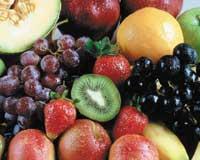The importance of good breakfast

Most dietary surveys make it clear that eating in the morning is not enough, both nutritional and calorie. He has not been given the importance he needs to breakfast, and has been considered an obligation made running and in haste, almost blinded. The word Euskaraz does not give us much clarity, but in the rest of languages it indicates that this morning meal breaks the fast of the night (des-fast in Spanish, de-jeuner in French), so we should put more emphasis on the food that gives us strength to break the night rest and get ahead of the work to perform during the day. Our body would thank us.
At one time, and also in other social models other than ours, the mid-morning lunch completed the needs of the body. And in this second supplemental meal sausages, cheese, eggs, etc. were usually consumed. Today, however, for many people (I would say almost all), a coffee or juice and a couple of cookies, that's your daily breakfast. And that, of course, is not enough for a balanced diet. The fact is that breakfast is essential to face with force the day of tomorrow, to carry loaded the deposit of glucose that we will spend at work or in studies.
Essential for children and young people

A balanced breakfast (V. The table) distributes the calories more appropriately throughout the day and also ensures the ingestion of essential nutrients in the school season, to know that growth and development are on the right track. However, according to a study conducted in the 1996-1998 biennium, children who go to school without breakfast in Europe are 7 million. This same study also shows that the first meal in the morning is less beneficial for most children and adolescents, in terms of caloric intake. This, logically, causes an imbalance in its nutritional status.
What if we don't have breakfast?
If breakfast is not done correctly, the body is affected by a number of consequences, such as weakness, lack of concentration and bad mood; this is due to the lack of glucose that fasting entails or, rather, not breaking the fast (do not forget that glucose is our main energy fuel). The absence of glucose forces the body to consume and burn other reserves, which will cause alterations in the normal functioning of the body.

This conditions the learning process itself during the school or university stage, which causes a decrease in performance, affecting the ability to speak and express, memory or memory, creativity and the ability to solve problems. Therefore, breakfast conditions the physical and psychic situation, not only in children and adolescents, but in all ages.
Balanced breakfast
Breakfast, to be adequate, should provide between 20 and 25% of the total calories consumed during the day. And, on the other hand, to be balanced, you should include different food groups: dairy (milk, yogurt, cheese, cottage cheese), fruits and cereals (bread, toast, cereals, cookies). You can also take other foods (meat derivatives, sausages, sweets, etc. ), but in small amounts.
- Cereals. They provide carbohydrates, vitamins and minerals, energy source. They also provide fiber.
- Dairy products. In addition to quality proteins, they provide calcium and vitamins of group A, D and B.
- Fruit. Carbohydrates, water, vitamins, minerals and fibers are obtained with them.
- Meat products. Cooked ham (watch out for serrano), low-fat meats, sausages… They will provide the quality proteins necessary for the production of tissues and cells, and fats that are energy source, but carefully, as they must be moderate.
- Others. Sugar, jam, honey, etc. provide carbohydrates and energy.
Some simple and healthy models If breakfast is just a meal before eating For those who do not need lunch, either because their energy needs are not very large, or because between breakfast and lunch there are no more than 4 hours.
For two shots One when getting up and the other in mid-morning because their working day allows them to do so or because they need extra energy. When rising:
Midmorning:
|





